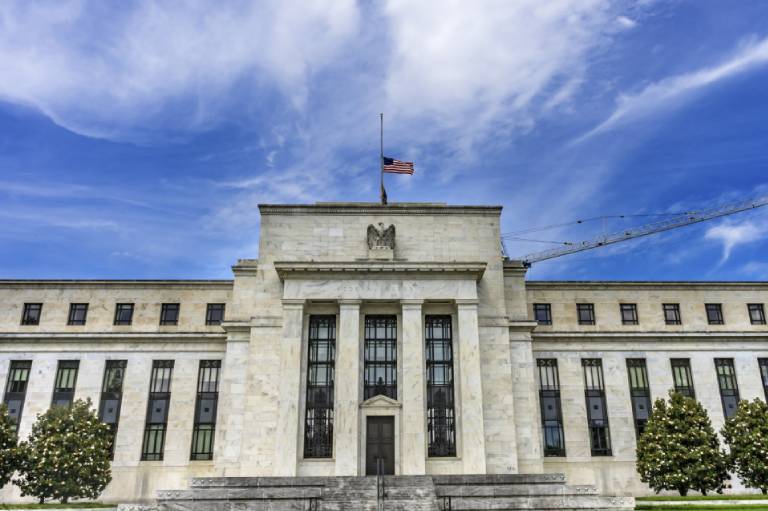The Federal Reserve System was established by the U.S. Congress in 1913, born out of the 1893 depression when J.P. Morgan had to intervene to stabilize the nation’s economy. The ongoing saga of financial panics and runs on banks finally convinced Congress to create a central bank and assign it the task of maintaining the nation’s economy with a safe, flexible and stable monetary and financial system.
The Fed has three main tools it uses to achieve its goals: adjusting the discount rates it charges on loans to banks and increasing or lowering bank reserve requirements are two. The third is its most effective tool of late, Open Market Operations, through which it buys and sells government-issued securities.
COVID-19 and junk bonds
Enter COVID-19 and its related effects on the U.S. economy. Household, corporate and municipal debt rose dramatically as all three segments that make up the U.S. economy were borrowing to replace lost income. It was enough to drive the DOW down 35 percent—and an unlikely scenario: all three sectors of the U.S. economy in decline, generating debt as opposed to their usual role of generating income. And unlike the Great Recession of 2007 and 2008, there were no parties to blame, such as the irresponsible lenders.
So unlike the Great Recession when the Fed did not move to correct the economic fallout, it made a move unprecedented in his 107-year history. On March 23, the Fed announced its intent to buy investment-grade corporate bonds, then on April 9, the Fed expanded its definition of bonds eligible for purchase to include high-yield or junk bonds. The Federal Reserve Act establishing the central bank in 1913 prohibits the Fed from buying corporate bonds, so they set up special-purpose vehicles through Blackrock, the world’s largest asset manger, to do the buying.
Without a single purchase
By announcing they would buy corporate and high yield bonds, the Fed made it clear they were willing to do anything to hold up the economy. And the mere announcement seemed to do the trick. Both the bond and stock markets stabilized. Bonds are inherently stable, but they had lost up to 10 percent in value. But when the Fed said they would buy, the private sector took heed, and in April the markets registered their biggest gains since 1987.
Indeed the Fed has begun buying corporate bonds, initially about $1.3 billion, including two of Blackrock’s iShares ETFs, two Vanguard funds and one State Street’s SPDR ETF. But the fact remains that the markets normalized and rebounded well before it made a single purchase.
The Fed’s move is not without concerns: We don’t want an economy that’s addicted to cheap money; we don‘t want negative interest rates; we don’t want an economy that’s accustomed to being bailed out by the government. We want a free-market economy that allows companies to fail. And there are concerns about inflation or a devalued dollar should the government continue to print money.
Still, it has been hard for economists to criticize the Fed’s decision. Whatever we might have thought of it when it was announced, the Fed’s unprecedented move worked.
IMPORTANT DISCLOSURES
The information included in this document is for general, informational purposes only. It does not contain any investment advice and does not address any individual facts and circumstances. As such, it cannot be relied on as providing any investment advice. If you would like investment advice regarding your specific facts and circumstances, please contact a qualified financial advisor.
Any investment involves some degree of risk, and different types of investments involve varying degrees of risk, including loss of principal. It should not be assumed that future performance of any specific investment, strategy or allocation (including those recommended by HBKS® Wealth Advisors) will be profitable or equal the corresponding indicated or intended results or performance level(s). Past performance of any security, indices, strategy or allocation may not be indicative of future results.
The historical and current information as to rules, laws, guidelines or benefits contained in this document is a summary of information obtained from or prepared by other sources. It has not been independently verified, but was obtained from sources believed to be reliable. HBKS® Wealth Advisors does not guarantee the accuracy of
this information and does not assume liability for any errors in information obtained from or prepared by these other sources.
HBKS® Wealth Advisors is not a legal or accounting firm, and does not render legal, accounting or tax advice. You should contact an attorney or CPA if you wish to receive legal, accounting or tax advice.
